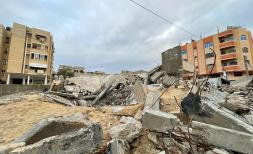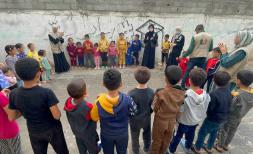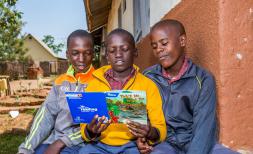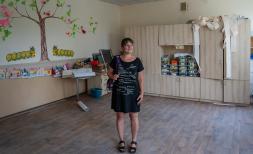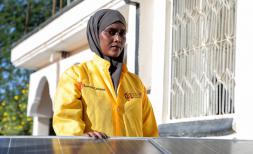Addressing the Poverty Barriers So We Can Reach Every Last Child
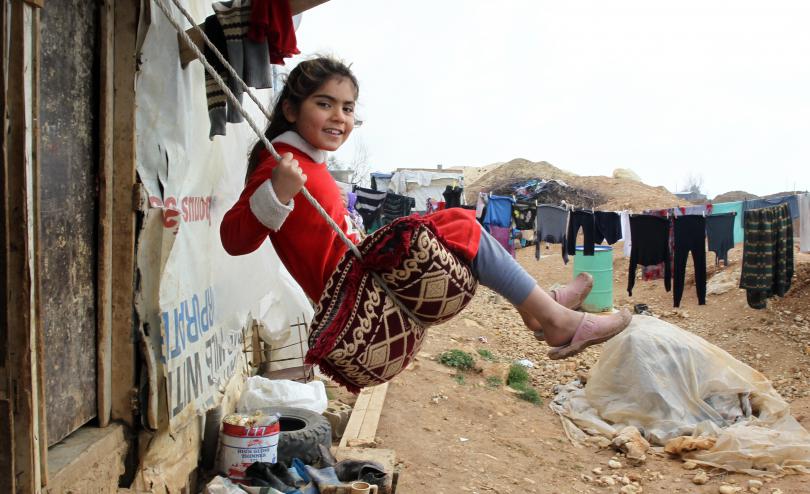
Extreme poverty in childhood is a major global barrier to ensuring every last child has the opportunity to survive, learn and be protected. It affects roughly 600 million children in poorer countries and over 30 million children in the richest parts of the world.
Across all regions, children in the poorest families are much more likely to die in their first years, to be malnourished, to miss out on basic education and learning, and to be subjected to protection failures such as labour exploitation and early marriage. Greater disaggregation of survey data in recent years has revealed the systematic impact of absolute and relative income poverty on the well-being and rights of both girls and boys.
Particularly in middle and high income societies, material deprivation is very closely bound to different forms of inequality and exclusion. Families who are in the bottom economic strata are less able to access basic health services and clean water, or to live in areas with good public schools, let alone to get access to private schools or tutors. Children in the poorest families live with greater psychological stress and insecurity and are more vulnerable to violence in both the family and the community. According to their own testimonies, they are also exposed to stigma and humiliation – often at school – and are prone to carry feelings of shame and hopelessness.
Economic poverty and inequalities are reinforced in turn by discrimination and exclusion. These are sometimes hidden, sometimes overt, and take different forms in different settings. Girls and women are still the most widely excluded people, despite historic advances in recent times. Many societies also stigmatize and exclude children and adults with disabilities; or members of certain ethnic and racial groups. Excluded from learning and economic opportunities, neglected in the provision of basic services, poverty among these groups is reinforced from generation to generation. This is both a cause and a symptom of the deprivations that amount to violations of their human rights.

Save the Children’s Every Last Child campaign recognizes the role of economic poverty in underpinning the exclusion of children and its impact upon their life chances. It is clear that the most excluded children in any society are likely to be among the poorest – and vice versa. These two challenges – economic on the one hand, social and political on the other – need to be addressed together if we are to make decisive progress to include every last child.
One way we are aiming to do this is to remove the stigma that children growing up in poverty experience – and to question instead the tolerance of child poverty itself. As adults, we need to take responsibility for allowing children to grow up poor when we have the knowledge and resources to resolve the problem.
Recalling the obligations of leaders to excluded children under the Convention on the Rights of the Child, we need to offer practical, including economic, solutions to partners who commit to taking action for their inclusion. And we need to support and empower children in making their own experiences of poverty and exclusion known to and heard by those with the power to decide.
Addressing the financial barriers
 Together with equal treatment and accountability, a commitment to fair finance by all governments is one of the three guarantees we are calling for to ensure we reach every last child.
Together with equal treatment and accountability, a commitment to fair finance by all governments is one of the three guarantees we are calling for to ensure we reach every last child.
Part of fair finance involves the adequate and equitable raising and spending of public budgets, to support families and caregivers to invest in the basic needs of their children - an area led for Save the Children by our global theme on Child Rights Governance.
However, fair finance goes beyond government revenues (including overseas aid) and expenditures: it also involves ensuring that all poor families and children have access to a basic income that provides financial security for their needs at all times – not least in times of humanitarian crisis. This basic income depends to a large extent on work opportunities for all adults, based on decent wages and conditions. At the same time, our work on Child Sensitive Social Protection aims to promote programmes by governments that ensure basic income is available to meet food, clothing, shelter and other needs for the poorest children under all circumstances.
And thirdly, as adequate levels of government spending on health, nutrition, education, WASH and protection services come into place, complemented by social protection measures for the poorest children and families, it becomes easier to tackle the many forms of financial exclusion imposed by local, often arbitrary cost barriers to using these services. These include: the fees at point of use that might seem trivial to those who impose them; the “informal” levies that neglected schools and un(der)paid teachers demand of parents; the parallel markets which spring up when medicines and clean water are in scarce supply – all of which penalize the poorest children the most.
These three sets of essential actions – adequate public spending on services to invest in children; social protection to support the poorest families; and removing cost barriers to basic services – would help guarantee that no child is excluded because of lack of money and material resources; and that every caregiver can afford to feed and clothe their child, to keep them safe and warm, take them to a clinic, support their learning and keep them in school.
Every country can and should do more. But this is also our global, collective responsibility. At the time when humanity is at its wealthiest – with resources unimaginable to all previous generations - there is no justification or excuse for any child to be excluded from her or his rights on the basis of poverty.
